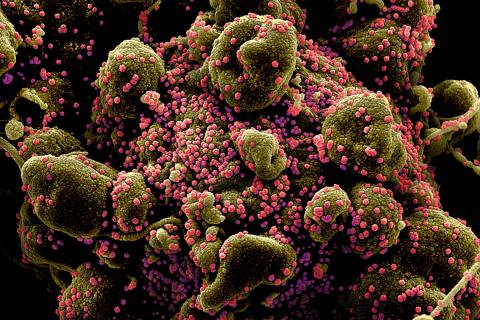Workshop Addresses Protecting Workers During Covid-19 Outbreak

Strategies to prevent spread of COVID-19 and protect frontline workers were front and center during the 2020 Worker Training Program (WTP) virtual workshop held recently. Federal agency representatives, infectious disease experts and health and safety professionals shared timely information.
The workshop was originally scheduled to take place in Atlanta. WTP Director Joseph “Chip” Hughes said that after consultation with the Emory Woodruff Health Sciences Center, and broadly considering the risks of a face-to-face meeting during the pandemic response, organizers pivoted in just a few days to host a virtual forum instead.
WTP has a long history of training and preparing workers who face potential exposure to hazardous pathogens, such as swine flu and Ebola. WTP’s national network of trainers and experts will prove critical in protecting first responders and other front-line workers during the Covid-19 pandemic.
Workshop speakers discussed transmission of SARS-CoV-2, the virus that causes Covid-19, as well as worker protections, and federal, state and local training efforts. “We are constantly learning more about Covid-19,” said Dr. Richard Hunt of HHS’s Office of the Assistant Secretary for Preparedness. “We must be flexible and willing to adapt our training, because what you trained for last time might not work this time.”
Keynote speaker Dr. Lisa Brosseau, retired professor from the University of Illinois at Chicago, discussed the likelihood of close-range aerosol exposure to SARS-CoV-2, inherent risks for workers and necessary protocols for protection. “Analyze control methods across all levels,” she urged. “We can’t change the toxicity of the organism, so we have to decrease exposure. Workers who face the highest risk need the highest levels of protection.”
A key challenge is the shortage of respirators and other personal protective equipment (PPE) for health care, law enforcement and transportation workers. Capt. Lisa Delaney, associate director for emergency preparedness and response at the National Institute for Occupational Safety and Health, said her agency is partnering with other agencies to address ways to optimize PPE supplies in the face of shortages. NIOSH is also developing guidance, fact sheets and communication materials for workplaces.
“We know this will be a long-term process,” said Hughes. “Training for front-line workers will continue to be our priority and focus.” In addition to continued coordination with federal partners, he said that WTP is working with private sector partners to launch an online training and learning platform for Covid-19.—Kenda Freeman

